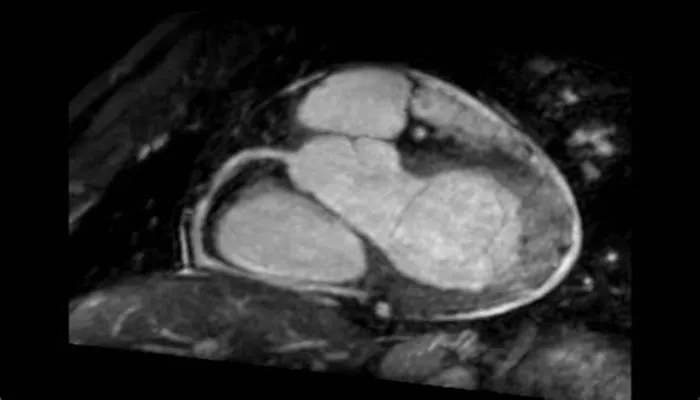A new study from the Centro Nacional de Investigaciones Cardiovasculares (CNIC) in Madrid, Spain, reveals how cardiometabolic risk factors and early-stage atherosclerosis affect coronary microvessels in seemingly healthy, middle-aged individuals.
Published in JACC: Cardiovascular Imaging, the research emphasizes the need to assess coronary microvascular function in people without known cardiovascular disease to better predict the progression of atherosclerosis and future cardiovascular risks.
Coronary microvascular function refers to the ability of the tiny vessels in the heart to regulate blood flow and oxygen delivery, which are critical for heart health. Using cardiac magnetic resonance imaging (MRI), the study measured coronary microvascular blood flow in 453 middle-aged participants from the PESA-CNIC-Santander study. All participants were asymptomatic.
The findings revealed that impaired coronary microvascular function was closely linked to cardiometabolic conditions like metabolic syndrome, insulin resistance, diabetes, and subclinical atherosclerosis—fatty deposits in artery walls that appear before symptoms emerge in peripheral or coronary arteries.
“Our results suggest that coronary microvascular function may serve as an essential predictor of long-term cardiovascular risk in apparently healthy people,” said Dr. Ana Devesa, the study’s first author. “Doctors should consider microvascular dysfunction as an early indicator when evaluating cardiovascular risk.”
Led by Dr. Borja Ibáñez, Scientific Director at CNIC, cardiologist at Hospital Fundación Jiménez Díaz, and a leader in Spain’s cardiovascular research network (CIBERCV), the study highlights the importance of focusing on early cardiovascular disease detection.
“The PESA study covers a critical age group for spotting early cardiovascular issues,” Dr. Ibáñez explained. “By examining microvascular function in this group, we uncovered patterns that might be missed in other populations. Early detection in this age range provides an opportunity to implement preventive measures before symptoms appear.”
Dr. Valentín Fuster, General Director at CNIC and leader of the PESA study, highlighted the practical implications, saying, “Coronary microvascular dysfunction is a key marker that clinicians should monitor in everyday practice. Our findings may change how we assess and treat individuals with cardiometabolic risk factors before cardiovascular symptoms arise. This could help improve prevention strategies and reduce the risk of cardiovascular events.”
The study tracked participants over a three-year period, showing that those with better coronary microvascular function experienced less atherosclerosis progression. These results suggest that monitoring microvascular function could play a pivotal role in assessing cardiovascular risk and preventing future health events.
In conclusion, the study demonstrates that cardiometabolic risk factors and systemic atherosclerosis are linked to altered coronary microvascular function in healthy, middle-aged individuals. The more risk factors and subclinical atherosclerosis present, the greater the disruption to microvascular function. On the other hand, better coronary microvascular health was tied to a reduced risk of atherosclerosis progression.

